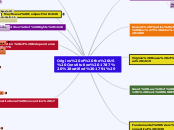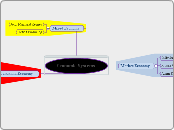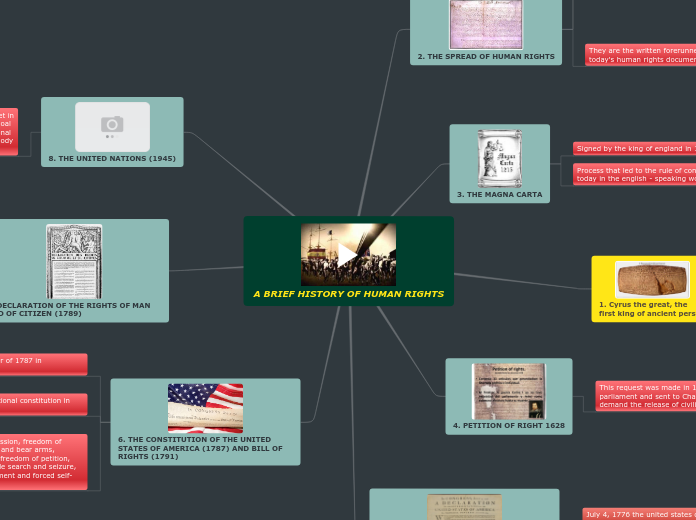a Karilinn Sommers 6 éve
274
Origins of the US Constitution
The development of the US Constitution in 1787 and its ratification in 1791 were influenced by several historical documents and ideas. Early foundations included the Mayflower Compact of 1626, which established self-governance for the benefit of the people, and the Great Law of Peace developed by the Haudenosaunee in the 12th century, which introduced concepts such as freedom of speech and religion, and a participatory democracy with a separation of powers.
Megnyitás
Origins of the US Constitution 1787 (ratified 1791) Constitutional Convention 1787 Connecticut Compromise Plan July 1787 2 houses House of Repr.
Senate
ONE Repr. per state Proportional Gov't Roger Sherman New Jersey Plan June 1787 ONE house = ONE repr. from EACH state William Patterson Based on population Each state to have 1 vote in Congress Virginia Plan May 1787 3 Branches Proposed strong central gov't James Madison Declaration of Independence 1776 People have right to replace bad gov't Gov't gets power from people Unalienable Rights Petition of Rights 1628 Rights of commoners to have a voice in gov't Mayflower Compact 1626 Gov't organized for good of people Contract to self gov't English Bill of Rights 1689 Right to trial Right to petition gov't No excess bails Freedom of speech & debate Fundamental Orders of Connecticut 1636 Framework for their government needed to be written and approved by representatives of the people Powers & Limits of gov't First written Constitution in Colonies that outlined how gov't worked Great Law of Peace 12th Cent. HAUDENOSAUNEE Benjamin Franklin + Albany Congress 1754 Women's Counsel = to Supreme Court Separation of Powers 2 houses & Grand Counsel Included: Freedom of speech, religion, Oldest, highly evolved participatory democracy Developed by Iroquois Nation Virginia House of Burgesses 1619 Elected from each county in Virginia with each county sending two representatives First elected representative assembly in America Second Treatise of Civil Gov't John Locke 1689 If gov't fails to protect citizens, they have a right to overthrow gov't Life, Liberty & Property Protect natural rights of people Ruler gains authority through consent of governed Basis of legitimate gov't Magna Carta 1215 Govt' must have peoples approval to levy taxes Right to fair & speedy trial by peers No cruel & unusual punishment









